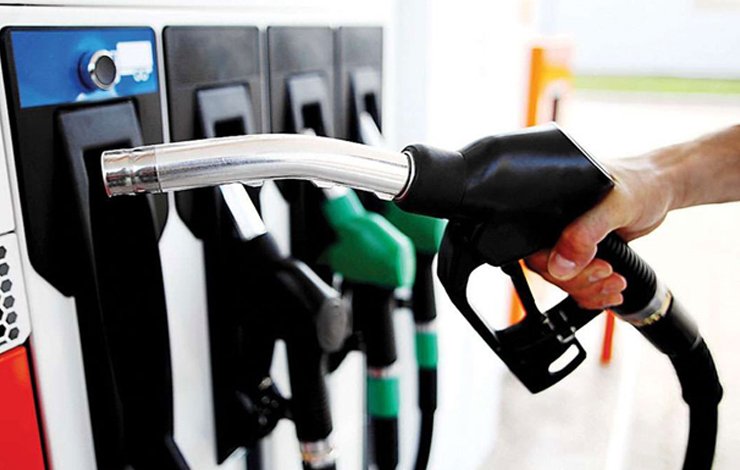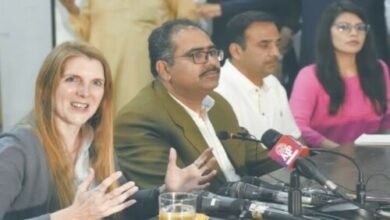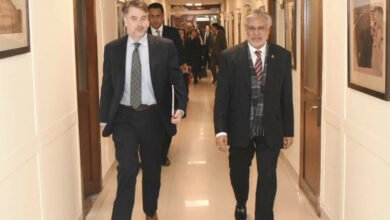How does Pakistani govt manage to slash petrol prices despite IMF conditions?
Analysts say the latest step of the PML-N govt would probably make an impact on the results of the Punjab by-elections.

Prime Minister Shehbaz Sharif has recently sought a summary from the ministries of finance and petroleum, carrying a proposal for reduction in prices of petroleum products in view of decreasing crude rates in the international market.
Global benchmark Brent crude tumbled $7 to below $100 a barrel on Tuesday on a strengthening dollar, demand-sapping Covid-19 curbs in top crude importer China, and rising fears of a global economic slowdown, according to Reuters.
In this connection, the premier chaired a meeting on Tuesday and asked the ministries concerned to move a summary suggesting reduction in petroleum prices, saying “the government has decided to pass on benefit of reduced oil prices in international market to the consumers,” the state-run wire service APP reported.
I have ordered Ministries of Petroleum & Finance to pass on the reduction in the prices of POL products in the international market to people. They have faced economic difficulties & the relief is their right. With Allah’s grace, we will continue to bring ease in their lives, IA.
— Shehbaz Sharif (@CMShehbaz) July 12, 2022
The prime minister told the meeting participants that the government would pass on the full benefit to the consumers who had been “braving hardships owing to the rise in petroleum prices”.
He said the government would reduce oil prices transparently at par with the reduction in the international market, which according to the PM Office statement, was a “gift to people on the occasion of Eidul Azha”.
He said the incumbent government would continue to providing relief to people hit by the inflation caused “due to policies of the previous government”.
Meanwhile, PML-N Vice President Maryam Nawaz also told a rally in Jhang on Tuesday that PM Shehbaz had a sought a summary from relevant departments for reduction in petrol price, adding the decision will be announced in a couple of days.
The government had last announced a hike of Rs14.85 per litre in the price of petrol on June 30, the fourth such raise in the last 35 days, taking the cumulative amount of all hikes since May 26 to nearly Rs100.
Question mark on IMF program
Despite claims made by the Pakistani government on multiple occasions, there was no evident proof of an agreement with the International Monetary Fund (IMF) while speculations were being circulated about the tough conditions to make a progress to acquire another tranche of loans.
The recent move of the coalition government ahead of Punjab by-elections has raised many eyebrows as to how the current rulers will manage to slash oil prices when there was a condition reportedly set by the IMF to end subsidies, especially on fuel prices.
Analysts said that the latest step of the Pakistan Muslim League Nawaz (PML-N) government would probably make an impact on the results of the Punjab by-elections just like a previous attempt made by Punjab Chief Minister Hamza Shahbaz after he announced subsidised electricity for 100-unit consumers across the province.
Despite the slumping oil prices in the international market, the PML-N government should clarify the details of its expected steps before slashing the petrol and diesel prices to ensure that the moves will not impact the deal with the IMF.
On factual grounds, the present government led by Pakistan Muslim League Nawaz (PML-N) failed to show any progress on the IMF loan program despite making tall claims. The country has neither received any tranche of loan from the global financial institution nor any documented shape of an agreement came forth yet.
A few days ago, News360 reported that a documented shape of the agreement has not emerged yet despite settlements on all the issues between the government with the International Monetary Fund (IMF). There were media reports about its alleged postponement as the IMF set condition for Pakistan to pass an anti-corruption law.
However, the coalition government continued blaming the previous Pakistan Tehreek-e-Insaf (PTI) government for leaving no option other than accepting the tough conditions of the global financial institution.
Declaring implementation of IMF conditions mandatory, the coalition increased the prices of petrol, electricity and other commodities to a record highest. Moreover, the US dollar has reached the highest level in the history of the country while foreign exchange reserves are also under severe pressure.
Economists said that an agreement with the International Monetary Fund is not only necessary to acquire a loan but other international institutions and countries are also subject to a loan or concession from the IMF.



